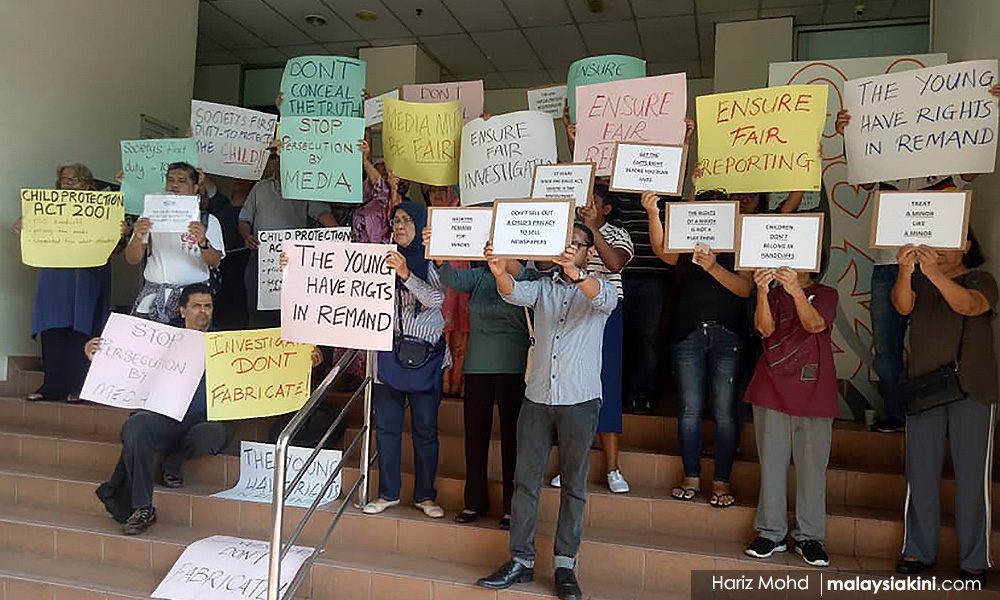COMMENT | Unicef is concerned by the level of protection that children in conflict with the law have been accorded, and the unethical way they have been portrayed in the Malaysian media recently.
Whether as victims or offenders, (including those alleged or accused), children have rights and deserve respect and protection of their dignity and independence.
A child’s experience with the law can have a profound impact on their future and can determine if they are able to become productive citizens, or by contrast, if they fall into the trap of criminality.
For this reason, the Convention on the Rights of the Child (CRC) requires states to develop specialised responses for dealing with children in conflict with the law.
This response must take into account the child’s young age and promote their reintegration as contributing members of society.
Children are uniquely vulnerable and are dependent on adults for their protection and security; they have more limited levels of emotional and physical maturity to make appropriate decisions.
When children in conflict with the law have their identities exposed through the media, they are at risk of psychological distress and trauma, which will remain with them for life.
Over the past years, Malaysia has made notable progress to safeguard children in conflict with the law, through the Child Act 2001 and more recently through amendments to the Child Act in 2016.
The provisions in the Act are clear – arrangements must be made to prevent the picture of a child from being recorded in any manner on tape or film or by any electronic medium including while being taken for court appearances.
The way children in conflict with the law have been depicted in the Malaysian media is not compliant with the Child Act and is unethical according to Unicef's global reporting guidelines.
Every reporter, every editor and each of us as media consumers have the important responsibility to avoid causing further harm to the child’s well-being and development.

Room for improvement in act
While the Child Act includes provisions on the arrest of children, it provides limited guidance with respect to issues such as alternatives to arrest, restrictions on use of force or restraints, duration and conditions in police custody, and the presence of parents, probation officers, or lawyers during investigative procedures.
Recent cases clearly highlight the urgent need for a more holistic reform of the country’s juvenile justice system. A comprehensive, specialised response to children in conflict with the law is required to protect their rights and dignity.
Concrete recommendations to strengthen the juvenile justice system in Malaysia were made in a report commissioned by the Women, Family and Community Ministry through a joint collaboration with Unicef. Recommendations include:
- Amend the Child Act to include more detailed provisions on arrest, investigation, custody bail and remand, police conduct;
- Develop detailed police Standing Orders or a Code of Practice for handling children in conflict with the law;
- Strictly enforce the privacy provisions of the Child Act, sanctioning media outlets that violate children’s rights.
These recommendations are in line with the Convention on the Rights of the Child which Malaysia has ratified.
Unicef will continue to provide technical support for the government to strengthen the juvenile justice system - through strengthening laws and policies and building capacities - so that children in conflict with the law are treated in a child-sensitive manner.
A child is a child. Their rights, especially when they come into conflict with the law, whether as offenders or victims, must be respected. Each of us can make a difference in a child’s life, giving them hope for the future.
Sarah Norton-Staal is the acting Unicef representative to Malaysia.
The views expressed here are those of the author/contributor and do not necessarily represent the views of Malaysiakini.

